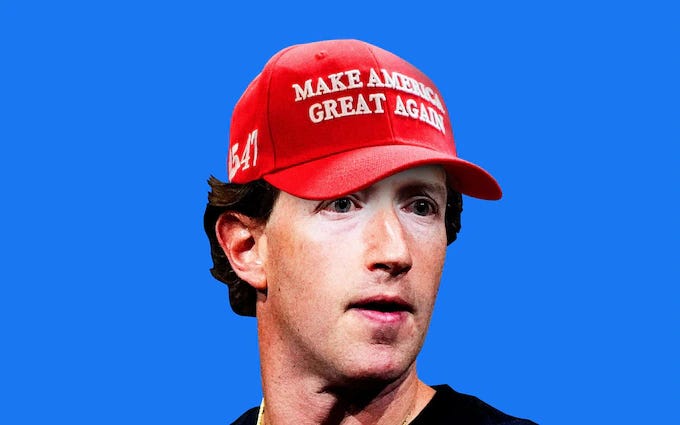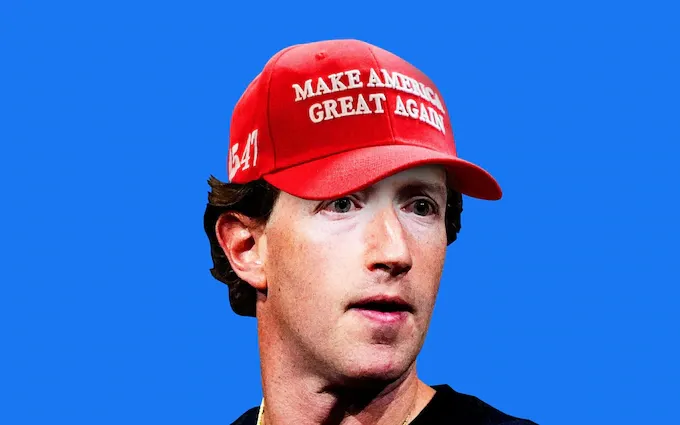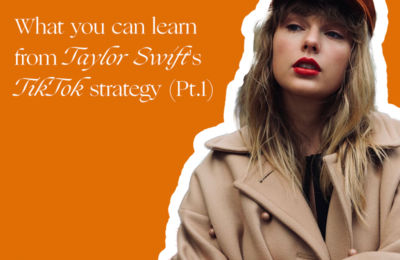How one tech giant’s embrace of AI and dismissal of accountability could change the internet forever.
Mark Zuckerberg’s latest announcements on Meta’s “new chapter” are far from reassuring. Since my last article, he’s also joined Joe Rogan for a three-hour-long podcast, doubling down on his arguments about the challenges of content moderation. Meanwhile, I’ve noticed some recurring sentiments online that deserve a deeper critique. These range from casual dismissals to outright whataboutism, all of which dangerously undermine the urgency of the moment. If you think this is just business as usual, it’s time to reconsider.
The AI Factor: A New Era of Confusion
Meta’s decision to lean heavily on AI, including the introduction of AI-powered profiles and “creative” tools, is no small tweak. This shift compounds the risks I outlined previously around Community Notes and misinformation. Already, social media users struggle to differentiate between real content and AI-generated material. Now, with the “dead internet theory” gaining traction – suggesting platforms are being flooded with AI-generated content – it’s not hard to imagine the chaos this could bring.
Consider this: Community Notes, already prone to majority bias and manipulation, will be applied in an ecosystem increasingly shaped by synthetic content. How will users fact-check what they cannot even identify as real? This combination of AI proliferation and user-driven moderation is a recipe for amplifying disinformation at an unprecedented scale.

Source: Telegraph
Zuck vs. Europe: The Bigger Picture
It’s tempting to see Meta’s policy shifts as primarily targeting the US, where “free expression” rhetoric often holds sway. But Zuckerberg’s grievances with the European Commission – going so far as to liken their competition rules to tariffs – suggest a broader agenda. His reported push for Trump to intervene hints at a transatlantic power play, where tech regulation becomes another front in geopolitical rivalry.
This isn’t just about free speech. It’s about consolidating influence and shaping policy environments that suit Meta’s interests, often at the expense of local governance and consumer protections. The implications for global users, especially in regions with stricter content standards, cannot be overstated.
And let’s not forget, this isn’t Zuckerberg’s first rodeo. He previously took two years to take Holocaust denial claims seriously as a reason for content takedown, showcasing a long history of resistance to accountability.
Whataboutism: A Dangerous Distraction
A common refrain I’ve encountered: “But other platforms do it too.” Yes, misinformation and questionable moderation practices are not exclusive to Meta. But this isn’t a justification – it’s a distraction. Here’s why:
Meta’s reach is unparalleled. Facebook, Instagram, WhatsApp, Threads, and Messenger collectively dwarf the user bases of other platforms. When Meta shifts policy, the ripple effects are global, shaping online discourse in ways no other company can. Instead of using whataboutism to deflect, we need to focus on the outsized responsibility Meta bears in this space.
“But We Can’t Do Anything”: Think Again
It’s easy to feel powerless in the face of a corporation as massive as Meta. But history shows that collective action works. Whether it’s boycotts, policy advocacy, or simply reallocating ad budgets, there are ways to push back:
- Corporate Social Responsibility (CSR): Many companies tout their CSR credentials but fail to align their ad spend with their stated values. Now is the time for businesses to walk the talk.
- Conversations and Education: Talk to peers, teams, and leadership about diversifying platforms and reducing dependency on Meta’s ecosystem.
- Platform Prioritisation: Invest in platforms with healthier community dynamics and stronger moderation policies.
The Human Cost
Beyond the technical and financial ramifications lies a deeply human impact. The changes to Meta’s hateful content guidelines – allowing users to refer to transgender people as “it” or allege mental illness based on gender or sexual orientation – are abhorrent. Framing these policies as “free expression” ignores the harm they inflict on marginalised communities.
We are watching a platform that reaches billions dismantle safeguards against hate and misinformation while outsourcing accountability to users. This isn’t freedom; it’s abdication.
The Power of Small Shifts
Let’s be realistic: not every company will immediately cut ties with Meta. But even incremental changes, a shifted budget here, a public statement there, can signal that unchecked power has consequences. We need to ask more of ourselves, our companies, and our platforms. It starts with rejecting complacency and choosing action over apathy.
Zuckerberg may see this as a “new chapter,” but we have a say in how this story unfolds. Let’s make it one that prioritises people over profits and principles over passivity.



